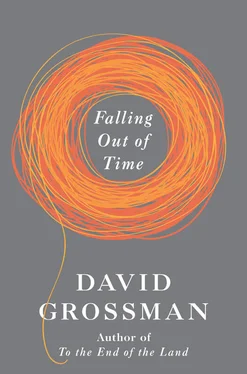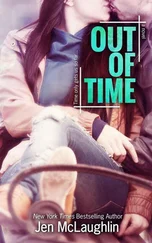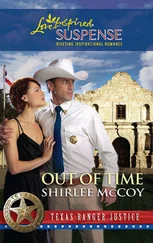sink our faces
in the wall, breach it ,
pull them ,
tear them
out—
We froze. We did
not move! If only
we could speak to them, we thought ,
we’d tell them everything
we did not say when they
still lived. Or else
we’d shout at them
through the lips of the hole
rent in us, through which
our life
seeps out
in throbbing
surges .
CENTAUR: The walking man suddenly fell on his knees at the wall and whispered his son’s name. There was no voice in his whisper, only a gaping mouth and torn eyes. In my room, I felt a sharp blade fly over here from there and slice me in two. Through my swoon of pain I heard behind me, from within the piles of objects, the voice of a small child who said quietly, softly murmuring:
BOY:
There is
breath
there
is breath
inside the pain
there is
breath
CENTAUR: I stood up on my feet. I walked around the room. I picked up this or the other object and touched it, stroked it, brought it to my lips. Then I went back and stood at the window. I could see very well using a pair of binoculars I found in one of the piles: the walker’s whisper seemed to reap the other walkers. Like him, they, too, fell to their knees, the midwife and the cobbler, the elderly teacher, the net-mender and the duke, the town chronicler and his wife. And each and every one of them, each and every one of us, called out, whispered, to his child:
WALKERS:
Lilli—
Adam? My little
Lilli — Michael — Oh, my child ,
my sweet, my lost one — Hanna ,
Hanna, look here — Sorry, Michael ,
for hitting you—
Adam, it’s
Dad — Uwi—
My speck of life—
We awoke
lying on the ground .
The wall
stood no longer .
Perhaps it had never been
there. Perhaps nothing
of what we saw
really was .
But then a strange thought
passed through
all of us ,
elusive yet acute ,
as if a hand
had stitched us
with a thread: perhaps
when the man
stood up
in his little kitchen
and said:
I have to go there ,
perhaps at that same moment
something also shifted
there .
And when
the man began
to walk around himself
in circles
by his house—
they, too ,
from there ,
began to walk
here ,
to the meeting point?
We pictured them
now slightly stooped ,
waning ,
slowly turning
back .
WALKING MAN:
And he
is dead.
I understand, almost,
the meaning of
the sounds: the boy
is dead.
I recognize
these words
as holding truth.
He is dead,
he is
dead. But
his death,
his death
is not
dead.
CENTAUR:
Yet still it breaks my heart,
my son,
to think
that I have—
that one could—
that I have found
the words.
April 2009–May 2011
The quote on this page is from e. e. cummings’s
poem “a clown’s smirk in the skull of a baboon.”
The quote on this page is based on Avraham
Huss’s Hebrew translation of “Orpheus,
Eurydice, Hermes,” by Rainer Maria Rilke.
David Grossman was born in Jerusalem, where he still lives. He is the best-selling author of several works of fiction, nonfiction, and children’s literature, which have been translated into thirty-six languages. His work has also appeared in The New Yorker . He is the recipient of numerous awards, including the French Chevalier de l’Ordre des Arts et des Lettres, the Buxtehuder Bulle in Germany, Rome’s Premio per la Pace e L’Azione Umanitaria, the Premio Ischia International Award for Journalism, Israel’s Emet Prize, and the 2010 Frankfurt Peace Prize.
A Note About the Translator
Jessica Cohen was born in England, raised in Israel, and now lives in the United States. She translates contemporary Israeli fiction, nonfiction, and other creative works, among them David Grossman’s critically acclaimed To the End of the Land . Her work has appeared in The New York Times, Financial Times, Tablet Magazine, Words Without Borders , and Two Lines .
About This Reading Group Guide
The questions, discussion topics, and reading list that follow are intended to enhance your reading group’s discussion of Falling Out of Time , internationally acclaimed author David Grossman’s powerful, genre-defying exploration of grief and bereavement as experienced by residents of a small village.
About This Book
Part prose, part play, and pure poetry, David Grossman’s Falling Out of Time is a powerful exploration of mortality, mourning, and the long good-bye that follows the death of a loved one. As linguistically impressive as it is emotionally wrought, Grossman’s trim fable unpacks the complexities of grief as they are experienced on a personal and collective level, leading readers on a journey to define the universal, yet often indescribable, feeling of loss.
Set in a small seaside village, the characters of Falling Out of Time are bound by grief: all are parents who have experienced the death of a child, and all struggle with pain they are unable to articulate. The book opens in the home of two such characters, a man — simply described as Walking Man — and his wife, who are mourning the death of their son. Unable to bear the burden of his grief in the confines of his home, the man sets out on a journey to reach his dead son. He begins to walk around the village in ever-widening circles, reflecting on his sorrow as he paces. One by one, he is joined by a lively cross section of townspeople — from the Midwife to the Net-Mender to the Duke — each with his or her own story of loss to reflect upon. As they walk, questions about death and mortality are raised: Is there an afterlife? Is peace of mind attainable after such a loss? Is it possible, even for a fleeting moment, to trade places with the dead, to free them of their fate? The collectivity of the group serves as catharsis, ultimately turning these individuals’ private experiences of pain into a comforting hymn of hope. Elegantly economical and intensely moving, Grossman’s book is a singular exploration of how to live life in the face of tremendous loss.
Questions for Discussion
1. As Falling Out of Time opens, Walking Man and his wife are embroiled in a tense discussion about whether or not he should embark on his journey. Why does his wife protest the decision? How does her perspective on her husband’s journey change in the course of the book?
2. On this page, Walking Man’s wife asks him: “Will I ever again / see you / as you are, / rather than as / he is not?” How is the relationship between husband and wife changed by the loss of a child? How does it affect specific couples in the novel — the Town Chronicler and his wife, the Midwife and the Cobbler?
3. The Town Chronicler is initially introduced as a sort of omnipresent force who objectively catalogs the events of the town from a distance. Yet as the book progresses, his own melancholia is revealed. What initiates this change? What does this suggest about the presentation of self in professional versus private spheres?
Читать дальше











